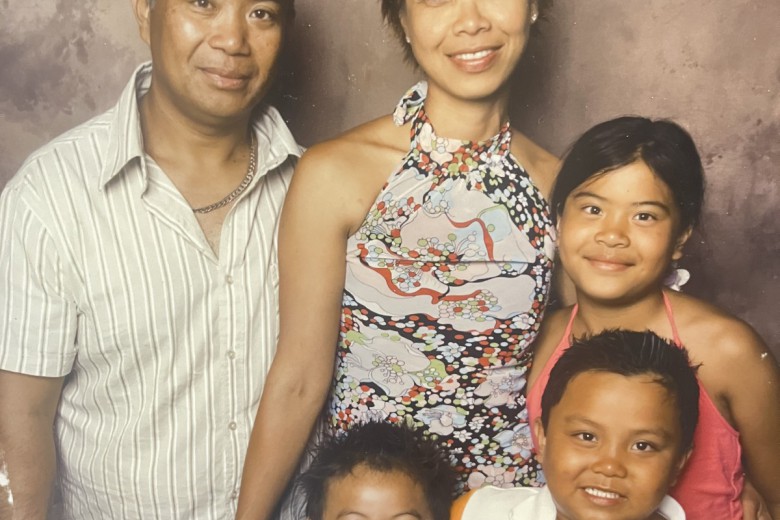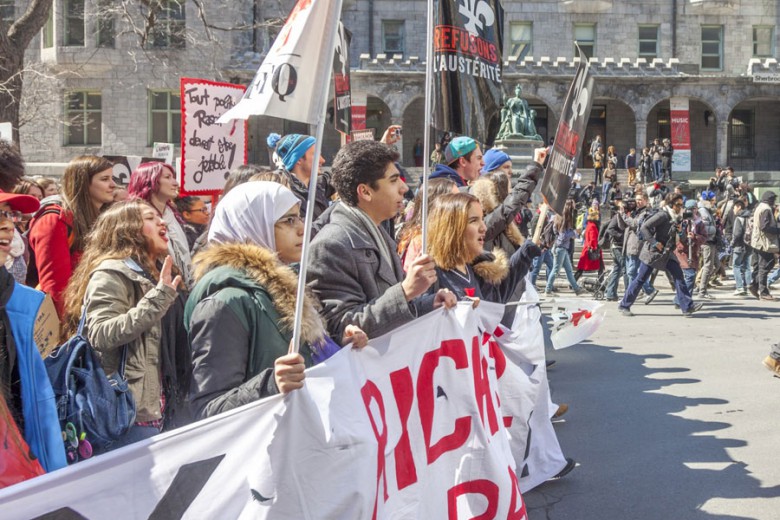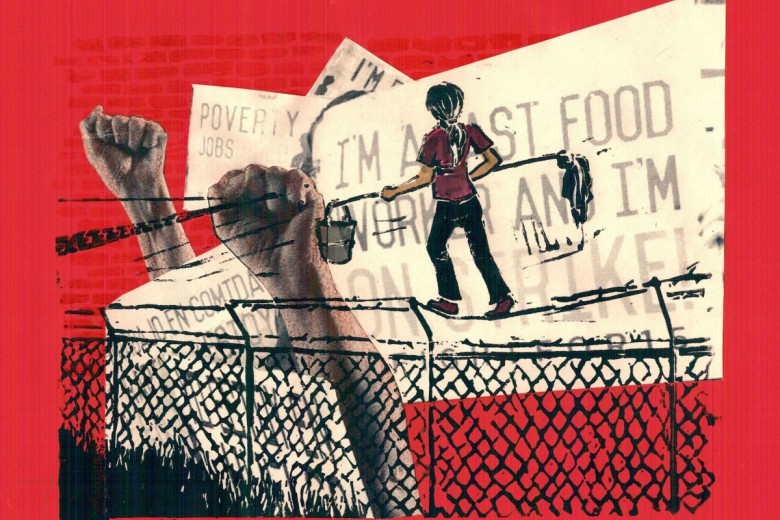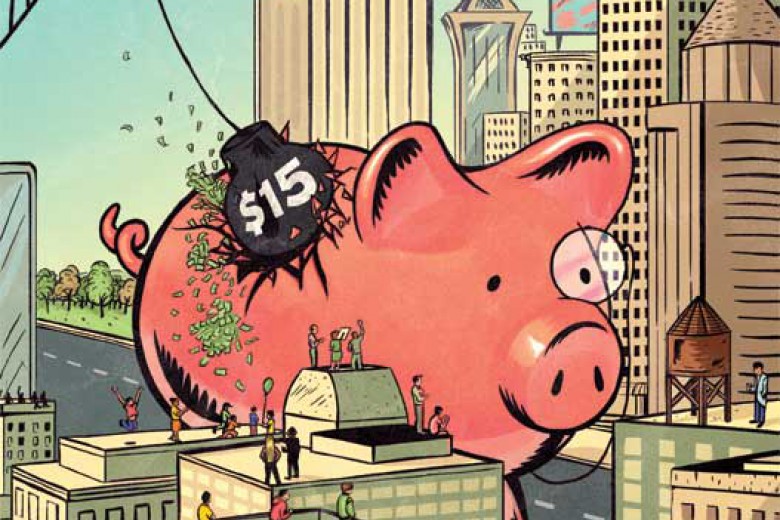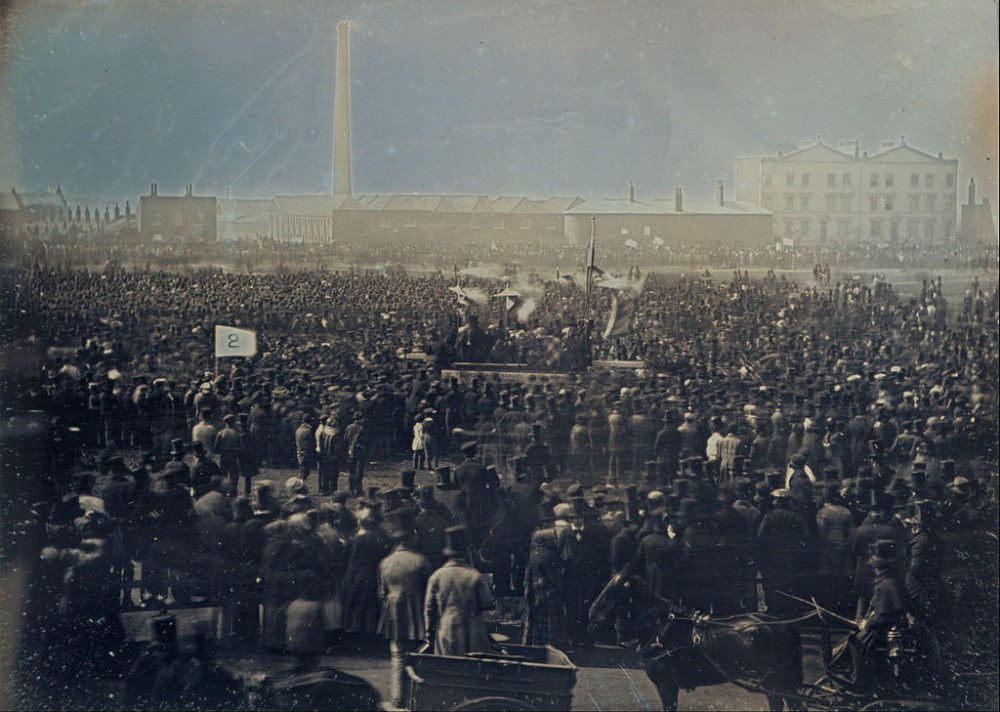
It was one month after I wrote a final grad school exam this summer when I got the happy news from Briarpatch that I was hired as the new editor. That exam was for a degree in political sociology, a broad discipline that concerns itself with the ways in which people interact with and shape political power. Of all the political issues I studied – democratization, social movement mobilization, populism – one of the stickiest concerned the relationship between state repression and the militancy of labour movements.
The logic is simple. During labour’s formative years in industrialization-era Europe, the more repressive states acted in response to burgeoning labour activity, the more revolutionary the labour movements became. With political and economic rights denied, labour activists had more to fight for. Their retreat underground fostered radical manifestos and mobilized leadership and membership to push against state-capitalist exploitation. This radical rendering was the case in Germany, where socialism was violently outlawed by Bismarck, and in France and Italy, where electoral corruption alienated workers and propelled their syndicalism.
Conversely, “benevolent” governments that allowed labour to organize as formal political actors and granted suffrage to the working class fostered more moderate labour activists. With survival guaranteed, labour activists could work inside the system (often as elected politicians), and they were reluctant to jeopardize that security. The cost of the reformist approach was revolutionary spirit. This was the case in Britain, where a conciliatory state response to the Chartist demands secured political and economic rights for workers and led to moderate labour leaders establishing the Labour Party – a form of nominal power-sharing with the working class.
There are two truths in this pattern, one cruel and one hopeful. The cruel truth is that having to fight for survival brings out fierce ideas. The hopeful truth is that states and the elite react to labour movements; after all, it was Bismarck’s frustration over the determined perseverance of the labour movement (even in the face of extreme repression) that pinched the German government into creating the welfare state.
To be clear, I am not in favour of increased repression. Unions face more than their share of hostility from governments and employers as it is. But there is something to be said for what a tough crunch can do to inspire new ideas – to democratize and to radicalize the movement. And these days, labour is in a tough crunch. The movement is faced with a steady assault on the formal rights of unions, exploitative spikes in the cost of living, an environmental crisis that appears entangled with a jobs crisis, and populist pooh-poohs of the value of collective bargaining rights.
This issue of Briarpatch is a robust collection of stories about labour’s challenges. Amber Gross and Molly Swain offer valuable tough love, coupled with a vision for a new labour movement that zeroes in on opportunities for unions to help build a militant, democratic, and intersectional movement. Universal basic income, a hot idea among many progressives, is revealed as a potential tool of the right to defang unions and the welfare state. In the North, the compounded effects of colonialism and capitalism, along with the impacts of climate change, have displaced traditional economies.
Our labour issue is not all doom and gloom, though. Our contributors offer radical reimaginings of how the labour movement can respond to the challenges. Umair Muhammad proposes ways to address the environmental costs of our devotion to the capitalist mode of production by bolstering the public sector. Labour activists fighting for the $15/hour minimum wage are confronting systemic barriers in the legislative and political realms while fighting for all low-wage workers, not just union members. Amy Dakue invites us to do better with queering the workplace, so that people we work with every day aren’t silenced and erased.
Perhaps above all, this issue of Briarpatch reminds us that the labour movement can never build alone. The labour movement started in an environment of severe political and economic deprivation as a movement for democratic production and full suffrage. But full suffrage long meant full male suffrage, and the work of women and people of colour has long been marginalized, taken for granted, ignored, and devalued for being “natural.”
Labour is not democratic unless it champions the liberation of all people. In many ways, today’s labour movement is far from inclusive, far from feminist, far from decolonized, far from sustainable. In many other ways, the movement is being built up and nourished with radical ideas of collective action and solidarity. This issue is evidence of the courageous ideas that challenge repression in all its forms.


